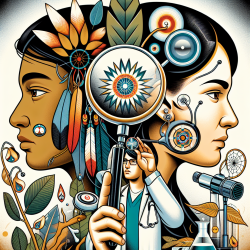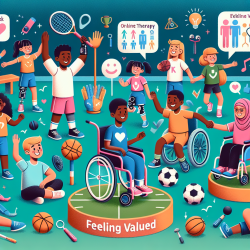Introduction
In the ever-evolving field of healthcare, understanding and integrating diverse cultural perspectives is crucial for providing effective care. The research article titled Clinical Strategies to Develop Connections, Promote Health and Address Pain From the Perspectives of Indigenous Youth, Elders, and Clinicians offers valuable insights into how practitioners can enhance their skills and improve health outcomes for Indigenous youth. This blog post aims to highlight the key findings of the study and encourage practitioners to incorporate these strategies into their practice.
The Importance of Cultural Sensitivity
The study underscores the significance of culturally sensitive care in improving health outcomes for Indigenous youth. Indigenous Peoples in Canada experience higher rates of physical pain and adverse health outcomes compared to the non-Indigenous population. The research highlights the need for clinicians to create safe spaces for Indigenous youth to express their pain and hurt, promoting a holistic approach to health that encompasses mental, emotional, spiritual, and physical well-being.
The LISTEN Approach
One of the main strategies proposed by the study is the LISTEN approach, which provides a framework for clinicians to engage with Indigenous youth effectively. The acronym LISTEN stands for:
- Language: Understand and respect the unique language and communication styles of Indigenous youth.
- Individual: Recognize the individual needs and experiences of each youth, avoiding assumptions based on stereotypes.
- Share: Foster mutual knowledge exchange and blend Indigenous and Western practices in pain management.
- Teachable Moments: Utilize opportunities to educate youth about resources and cultural practices that can aid in pain management.
- Engage: Actively involve youth in their care, encouraging them to express their needs and preferences.
- Navigate: Assist youth in navigating both Indigenous and Western healthcare systems to access appropriate support.
Implementing the LISTEN Approach
Practitioners can implement the LISTEN approach by incorporating the following strategies into their practice:
- Translation of Healthcare Terminology: Simplify medical jargon and use language that resonates with Indigenous youth.
- Exploration of Health Literacy: Assess and address the health literacy levels of youth to empower them in managing their health.
- Cultural Body Language: Be aware of cultural differences in body language and expression of pain.
- Individualized Care: Tailor care plans to the unique needs and cultural backgrounds of each youth.
- Knowledge Sharing: Engage in reciprocal knowledge exchange with youth, incorporating traditional healing practices where appropriate.
- Resource Navigation: Guide youth in accessing culturally safe healthcare services and support networks.
Encouraging Further Research
The study highlights the need for ongoing research to better understand the experiences and needs of Indigenous youth in healthcare settings. Practitioners are encouraged to engage in further research and collaboration with Indigenous communities to enhance their understanding and improve care delivery.
Conclusion
By implementing the LISTEN approach and embracing cultural sensitivity, practitioners can significantly improve the healthcare experiences of Indigenous youth. This research serves as a valuable resource for clinicians seeking to enhance their skills and promote health equity. To read the original research paper, please follow this link: Clinical Strategies to Develop Connections, Promote Health and Address Pain From the Perspectives of Indigenous Youth, Elders, and Clinicians.










